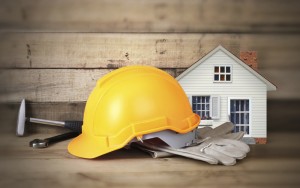Are you thinking about buying a property to invest in and flip for a sale? There is a lot of potential in low-cost investment properties, and if you go about the process right you can walk away with a nice profit. It’s important to do your homework before you make your final decision, so make sure you’ve taken care of the following before you buy an investment property.
What to Do Before You Buy an Investment Property
Assess Your Level of Readiness
Investment properties offer the opportunity for great returns, but getting into this project isn’t for everyone. Make sure you have the time and skill-set to get the most out of your investment.
Price Repairs and Permits
Price the supplies for the work you’ll do yourself, and get estimates from contractors for work you’ll contract out. You should also look into permit costs. Know what work will require a permit and how much you’ll have to pay. Time is also a factor with permits, as it may take some time before they’re approved. Add 10-20% to the total cost to cover anything that might come up later on.
Doing Structural Work?
Homes that need structural work can be had at great deals. Before you buy, hire a structural engineer to inspect the home. This will help you determine if the damage can be fixed, and give you a good idea of how much it will cost to repair. If you purchase an investment property that needs structural work, get a binding written estimate for repairs.
Financing
Take a good hard look at your finances and make sure you have the money for a down payment, closing costs, and repairs. If you’re going to use a home equity or home improvement loan to pay for repairs, make sure you’re pre-approved before the loan(s) before you buy. If you’re also getting a loan for purchasing costs, “Make the deal contingent on getting both the purchase money loan and the renovation money loan, so you’re not forced to close the sale when you have no loan to fix the house.” You may want to look into the FHA’s Section 203(k) program, which is a loan program designed to help people who are planning on buying a home and rehabilitating it.
Inspections
Have the home inspected by professionals. In addition to a general home inspection get inspections for, mold, radon, lead paint, septic, well, and pests. Include these as contingencies in your offer.
The Offer
Your offer should be the fair market value minus the improvement costs. The fair market value is what the house would be worth if it were in good condition and remodeled. Look for comps in the area. Subtract the amount you expect to pay for improvements and repairs, and you’ll have your offer.
Source
http://www.realtor.com/advice/tips-for-buying-a-fixer-upper/

